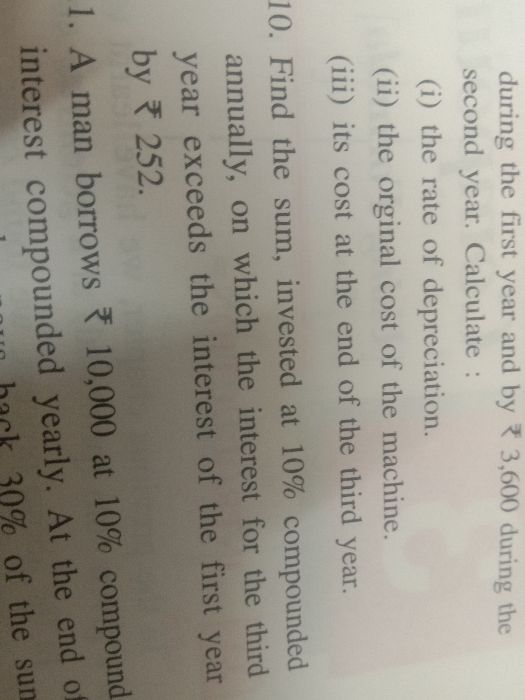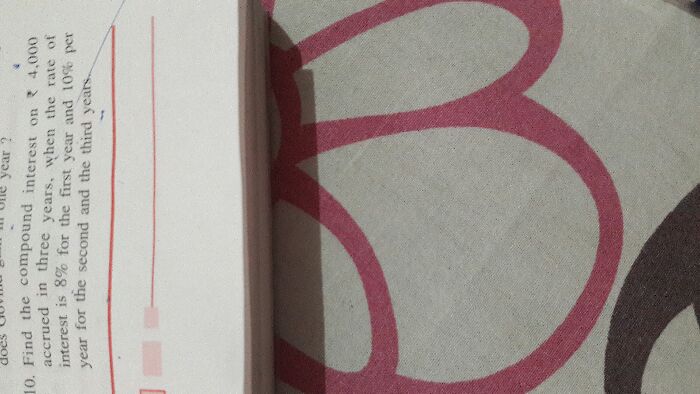ICSE Class 9 Answered
mesh invests $12.800 for three years at the rate of 10% per annum compound interest. Find: (1)The sum due to Ramesh at the end of the first year
(n) The interest he earns for the second year. The total amount due to him at the end of the third
Asked by krishnasangam2008 | 12 Apr, 2022, 17:24: PM
(i)
Interest for the first year = (12800 x 10 x 1)/100 = Rs. 1280
Sum due at the end of first year = 12800 + 1280 = Rs. 14080
(ii)
Principal for 2nd year = Rs. 14080
Interest for 2nd year = (14080 x 10 x 1)/100 = Rs. 1408
(iii)
Sum due at the end of second year = 14080 + 1408 = Rs. 15488
Principal for third year = Rs. 15488
Interest for third year = (15488 x 10 x 1)/100 = Rs. 1548.8
So, the total amount due at the end of third year = 15488 + 1548.8 = Rs. 17036.8
Answered by Renu Varma | 13 Apr, 2022, 10:54: AM
Concept Videos
ICSE 9 - Maths
Asked by krishnasangam2008 | 12 Apr, 2022, 17:24: PM
ICSE 9 - Maths
Asked by marimuthud13 | 21 Jul, 2021, 20:31: PM
ICSE 9 - Maths
Asked by Bt320042 | 04 Jul, 2021, 15:39: PM
ICSE 9 - Maths
Asked by dhyeyshah98.9soc | 14 Jun, 2021, 12:06: PM
ICSE 9 - Maths
Asked by syedfaaiz00 | 16 Aug, 2020, 08:53: AM
ICSE 9 - Maths
Asked by stylish.dev.d | 27 Jul, 2020, 17:50: PM
ICSE 9 - Maths
Asked by tripathiom167 | 24 Jun, 2020, 18:56: PM
ICSE 9 - Maths
Asked by bantikhan5069 | 13 Sep, 2019, 01:14: AM
ICSE 9 - Maths
Asked by aneesh382005 | 16 Jul, 2019, 14:23: PM





